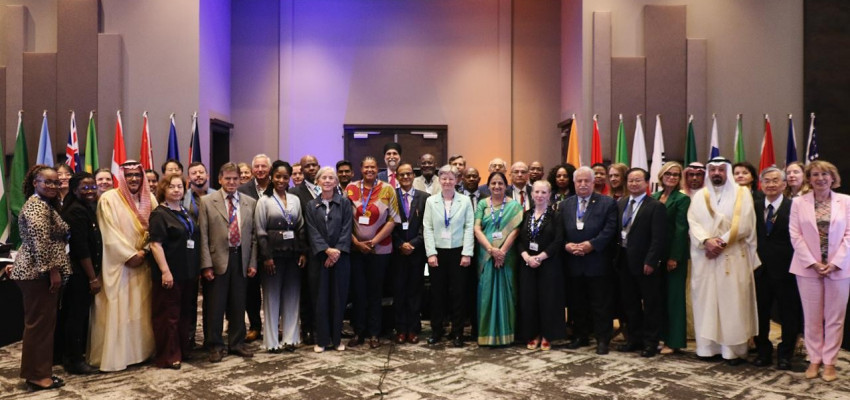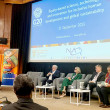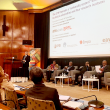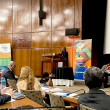Science Is Not a Privilege, It Is a Shared Heritage
TÜBA President Prof. Dr. Muzaffer Şeker participated in the G20 Chief Science Advisers Roundtable (CSAR) held in South Africa. The meeting's final communiqué was published.
The meeting in the capital Pretoria was held under the title “Equity-Based Science, Technology, and Innovation for Inclusive Human Development and Global Sustainability” which is in line with South Africa's G20 Presidency theme of “Solidarity, Equality, Sustainability.” The opening of the program, which was also attended by Prof. Dr. Ahmet Nuri Yurdusev, President of the Association of Academies and Societies of Sciences in Asia (ASSAA), was conducted by Tilson Manyoni, President of the National Advisory Council on Innovation (NACI). In addition to representatives from the science academies of G20 countries and organizations such as the United Nations (UN) and the United Nations Educational, Scientific and Cultural Organization (UNESCO), the event was also attended by managers of South African science and technology institutions.
Science and technology should be used not only for growth, but also for social peace and justice.
Participants were informed about the results of the first meeting on global science, technology, and innovation policy, held on April 24 and 25, 2025. These results were also submitted to the secretariat for the ministerial meeting held on September 23, 2025.
President Şeker noted in his speech at the meeting that the era of rapid change, with new technologies emerging every day, offered great opportunities in artificial intelligence, digital tools, biotechnology, and green energy, but also brought great inequalities. "Many countries and communities cannot access these opportunities. This is a challenge we face. Science and technology should not only bring growth. They should also serve peace, justice, and social cohesion. Otherwise, progress will divide us even further." He stated that education systems need to be re-examined. He emphasized the need to develop digital policies that preserve values, prevent harm, and promote prosperity. Speaking about the importance of justice at the global level, Şeker said that developed countries benefit most from science and technology and therefore have greater responsibilities. He said that justice is sharing knowledge, resources, and technology, and that this sharing is the only way to ensure a safe and sustainable future for everyone. Emphasizing that open science is an important tool, Şeker underlined that knowledge should not be the privilege of the minority. “Education, teaching, and joint projects are very important. We must turn brain drain into brain circulation. Let's allow experts and scientists to cross borders. In this way, we can build a future where no society is left behind, where science unites rather than divides,” he said.
The declaration highlights three main points: the global agenda, open information systems, and capacity building in Africa.
Şeker stated today that Türkiye welcomed the final declaration announced at the end of the day, saying that the future agenda we have adopted is shaped on the basis of partnership and justice.
"We have published a declaration that reflects the intensive efforts of all delegations. The declaration, which is a very clear and concise text, also sets out our common views on science, technology, and innovation. It reminds us that science and technology are not the goal in themselves, but rather tools for achieving justice, peace, and sustainable growth. The declaration focuses on three main priorities: it emphasizes the vital importance of establishing a global agenda for science and technology that supports the Sustainable Development Goals, namely a fair and inclusive energy transition, and the need for an open and fair information system for all countries. He states that openness will strengthen trust in science and bring new partners into the global community. Thirdly, capacity building in developing countries, particularly in Africa, is envisioned as an important step towards long-term stability and human development."
He specifically noted that the call to transform “brain drain” into “brain circulation” would help all regions benefit from the circulation of scientists and experts. He also considered it valuable to focus on creating an inclusive infrastructure and good governance for science, stating that these steps are crucial for building both strong and sustainable systems.
Şeker stated that the declaration was clear on the subject of open science, noting that the observations regarding the sharing of data and results under fair conditions were very appropriate, and that this fair approach would prevent divisions and encourage cooperation. "The declaration is not just words. It is a commitment. If we act together, this declaration will guide us towards inclusive human development and global sustainability."







